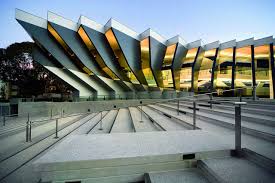-
Office No. 2202, Floor 22, Al Tabarak Tower, Al Mamzar, Sharjah, UAE


Top University of B Tech
B.Tech in Australia: Top Universities, Specializations, Fees & Career Scope 2025
Pursuing a Bachelor of Technology (B.Tech) or Bachelor of Engineering (B.E.) in Australia is an excellent decision for students aiming for a global engineering career. With cutting-edge infrastructure, practical teaching methods, and strong industry links, Australian universities are among the top choices for international engineering aspirants.
Why Study B.Tech in Australia?
✅ Globally Accredited Degrees
Australian B.Tech/B.E. degrees are recognized by the Washington Accord, making them valid in countries like the USA, UK, Canada, and New Zealand.
✅ Strong Industry Links & Internships
Australian universities collaborate closely with industry leaders like Google, IBM, Boeing, Tesla, and BHP, providing real-world exposure.
✅ Modern Labs & Research Facilities
Engineering campuses offer state-of-the-art labs, research centers, and simulation tools for practical learning.
✅ Post-Study Work Rights
International students can stay and work in Australia for 2–4 years after graduation under the Temporary Graduate Visa (subclass 485).
✅ High Employability & Salary
Engineering graduates in Australia enjoy high demand and competitive salaries across civil, mechanical, IT, and mining sectors.
Top Universities for B.Tech in Australia
Here are some of the best institutions offering undergraduate engineering degrees:
| University | Popular Engineering Fields | QS Rank 2025 (Engg.) |
|---|---|---|
| University of Melbourne | Mechanical, Civil, Biomedical, Software | Top 50 |
| University of New South Wales (UNSW) | Electrical, Civil, Renewable Energy, Computer Science | Top 40 |
| Monash University | Chemical, Mechatronics, Environmental, Aerospace | Top 50 |
| Australian National University (ANU) | Electronics, Systems Engineering, Data Engineering | Top 100 |
| University of Sydney | Biomedical, Structural, AI, Telecommunications | Top 50 |
| RMIT University | Automotive, Robotics, Software, Industrial Design | Top 150 |
| Queensland University of Technology (QUT) | Civil, Electrical, Mechanical, Computer | Top 200 |
| University of Adelaide | Petroleum, Mining, Electrical, Mechanical | Top 100 |
Popular B.Tech Specializations in Australia
You can choose from a wide variety of engineering streams based on your interest and future goals:
-
Computer Science and Software Engineering
Learn programming, app development, cybersecurity, and AI. -
Mechanical Engineering
Focus on design, thermodynamics, robotics, and manufacturing systems. -
Civil and Structural Engineering
In-demand due to Australia's ongoing infrastructure projects. -
Electrical and Electronics Engineering
Covers power systems, electronics, automation, and microcontrollers. -
Mechatronics and Robotics
Blends mechanical, electronics, and software – ideal for automation industries. -
Mining and Petroleum Engineering
High-paying specialization unique to Australia’s natural resource-rich economy. -
Environmental Engineering
Focus on sustainable development, pollution control, and green technology. -
Biomedical Engineering
Develop devices and solutions for healthcare applications.
Course Duration & Structure
-
Duration: 4 years (full-time)
-
Intakes: February & July (Some universities also offer November intake)
-
Structure:
-
Core engineering subjects
-
Specialization electives
-
Lab sessions and industry projects
-
Final-year capstone project or internship
-
Many universities also offer co-op programs or paid internships as part of the curriculum.
Eligibility Criteria for Indian Students
-
Academic Requirement:
10+2 with Physics, Chemistry, and Mathematics (minimum 60–70% marks depending on university) -
English Language Proficiency:
-
IELTS: 6.5 overall (no band less than 6.0)
-
TOEFL iBT: 79–90
-
PTE: 58–65
-
-
Other Documents:
-
Academic transcripts
-
Statement of Purpose (SOP)
-
Letters of Recommendation (LOR)
-
Resume (optional)
-
Passport copy
-
University-specific application form
-
B.Tech Fees in Australia
| University | Annual Tuition Fee (Approx.) |
|---|---|
| University of Melbourne | AUD 45,000 – AUD 50,000 |
| Monash University | AUD 42,000 – AUD 48,000 |
| UNSW Sydney | AUD 44,000 – AUD 52,000 |
| RMIT University | AUD 38,000 – AUD 44,000 |
| University of Adelaide | AUD 40,000 – AUD 45,000 |
Note: Fees vary by program and specialization.
Cost of Living for Students in Australia
| Expense | Average Monthly Cost (AUD) |
|---|---|
| Accommodation | 600 – 1,200 |
| Food & groceries | 300 – 600 |
| Transport | 100 – 150 |
| Utilities & Internet | 100 – 200 |
| Personal expenses | 150 – 300 |
👉 On average, international students spend AUD 20,000 – AUD 27,000 per year on living expenses.
Scholarships for B.Tech Students
Many Australian universities offer scholarships for international students:
-
University-specific Merit Scholarships
Based on your Class 12th academic performance. -
Australia Awards Scholarships
Fully-funded by the Australian Government (for select countries) -
Destination Australia Program
For students studying in regional campuses. -
Women in Engineering Scholarships
Encouraging gender diversity in STEM fields. -
Faculty-based grants
Offered by specific engineering departments.
Career Opportunities After B.Tech in Australia
Graduates of Australian engineering programs are in high demand across the globe. Top industries hiring B.Tech grads include:
-
Construction & Infrastructure
-
IT and Software Development
-
Automotive and Aerospace
-
Renewable Energy & Environment
-
Mining & Oil
-
Healthcare and Biomedical Tech
-
Government and Defence Sector
✅ You can earn AUD 60,000 to AUD 100,000+ per year depending on your specialization and experience.

Affileated Universities

Australian National University
(5 / 4 Rating)
-
Email Address:
info@myflyboard.com
-
Phone Number
+91 9818024841
-
Our Address
Office No. 2202, Floor 22, Al Tabarak Tower,
Al Mamzar, Sharjah, UAE
